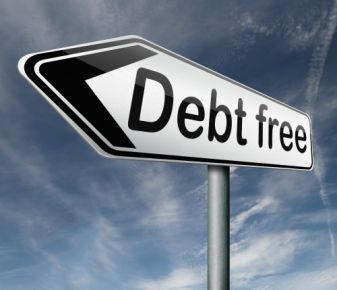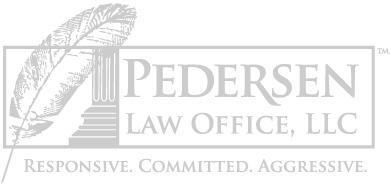Pros & Cons of Filing Bankruptcy
Jun 12, 2014

You have lost your job, your paychecks are being garnished, or your house is being foreclosed upon. You do not see a way out and you are thinking you need to file bankruptcy, but you don’t know anything about bankruptcy. What do you need to know?
What is Bankruptcy?
Bankruptcy is a legal process that helps people who cannot repay their debts get a fresh start. The court reviews the individual’s income, expenses, assets and debts to determine if they are entitled to debt relief. If the court determines it is unrealistic that the person will be able to repay their debts, the court wipes out the debts and gives them a fresh start.
Pros
Stops Collection Lawsuits. When struggling financially, it is inevitable that you will be taken to court for your unpaid bills at some point. This can be overwhelming and stressful. Once you file bankruptcy the Automatic Stay Order prevents creditors from continuing any collection efforts against you, stopping any lawsuits.
Stops Foreclosure & Repossession. If you are about to lose your home or vehicle due to non-payment, bankruptcy can help. There are bankruptcy programs that stop foreclosure to give a person time to catch up on or modify their home mortgage or auto loan to prevent losing them. On the other hand, if you no longer want to be responsible for the debt and are willing to walk away from the property, bankruptcy can eliminate the debt owed.
Stops Garnishments and Eliminates Judgments. As of the day you file bankruptcy, the Automatic Stay Order also prevents creditors from continuing, or starting, a wage garnishment. The money owed on the judgment can be wiped out in your bankruptcy.
Stops Harassing Phone Calls & Letters. When you are unable to pay your bills, nothing is more frustrating than the constant reminder of the money owed. Creditors and collection agencies will call you constantly and fill your mail box with past due notices. The Automatic Stay Order also stops harassing phone calls and letters. Often retaining an attorney for bankruptcy will redirect those phone calls and notices to the attorney’s office.
Gets Rid of Credit Card & Medical Debt. The most common debts discharged in bankruptcy are credit cards and medical debts, which are unsecured debts. Other commons debts discharged are in bankruptcy are pay day loans, unpaid utilities, vehicle repossession fees, auto accident claims, back rent, business debts, and old tax debts.
Cons
Damages Your Credit. The record of you filing bankruptcy remains on your credit report for up to 10 years. This can be can be intimating, but what truly affects your credit score is what you do after your bankruptcy is complete. With appropriate planning you can often ensure a better score shortly after bankruptcy than you had before filing for bankruptcy. For instance, you can be eligible for a FHA home loan within 2 years after your discharge assuming you take the right steps to rebuild your credit score during that time.
Lose of Use of Credit Cards. Your bankruptcy will discharge all of your credit card debts. However, it will also eliminate the option of using those credit card accounts in the future. Some individuals get worried that they will not be able to rent hotel rooms or online purchases without a credit card. Luckily, if you have a checking account at a bank or credit union, a debit card will act in the same way as a credit card. By using a debit card instead of a credit card you are spending money you have now instead of spending money you hope to have in the future.
Loss of Property. When you file bankruptcy, the court requires you to surrender all “non-exempted property”. Fortunately, bankruptcy law provides a generous amount of exempt property. Exempt property is the assets that a person is allowed to own and keep when filing bankruptcy. The most common property to be exempted includes equity in a home, vehicles, recreational vehicles, household goods, jewelry, bank accounts, retirement accounts, and life insurance policies. For most that file bankruptcy all property they own is considered exempt and they lose none of their assets.
Child Support, Alimony & Student Loans. Unfortunately, these debts do not go away in bankruptcy, but bankruptcy will eliminate many of your other financial responsibilities.
Is Bankruptcy Right for You?
Bankruptcy can drastically improve your life if you are struggling to make ends meet. How bankruptcy will affect you personally is best determined by sitting down with a bankruptcy attorney to discuss your specific income, expenses, assets, and debts. Pedersen Law Office offers free consultations in all of our areas of practice and would be more than happy to meet with you and see how we can help you. Our law office serves the communities of Appleton, Neenah, Menasha, Oshkosh, Green Bay and their surrounding areas.


